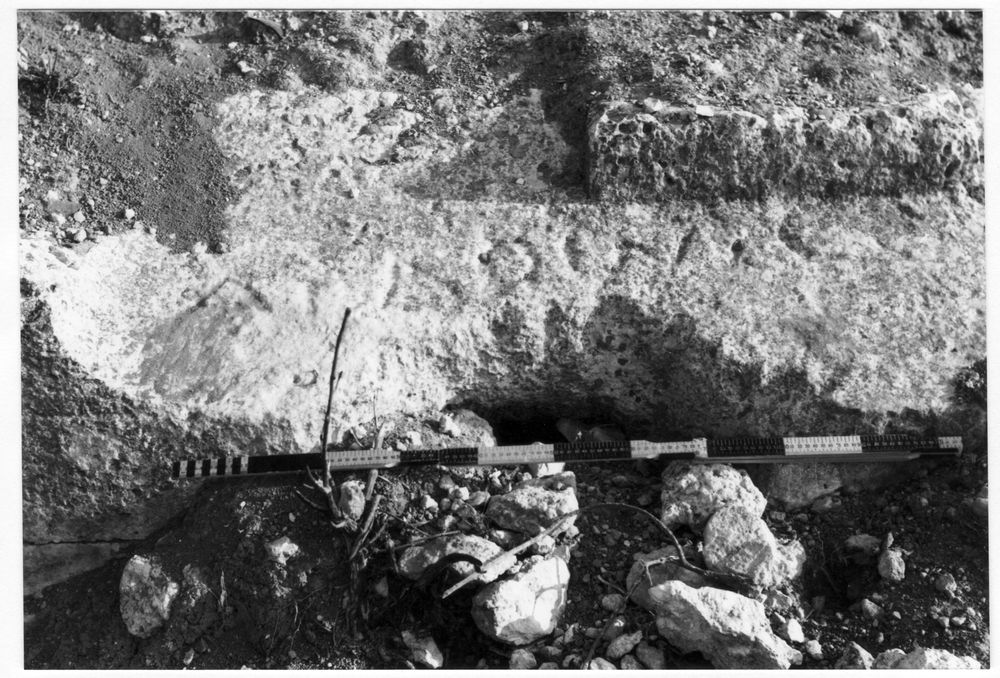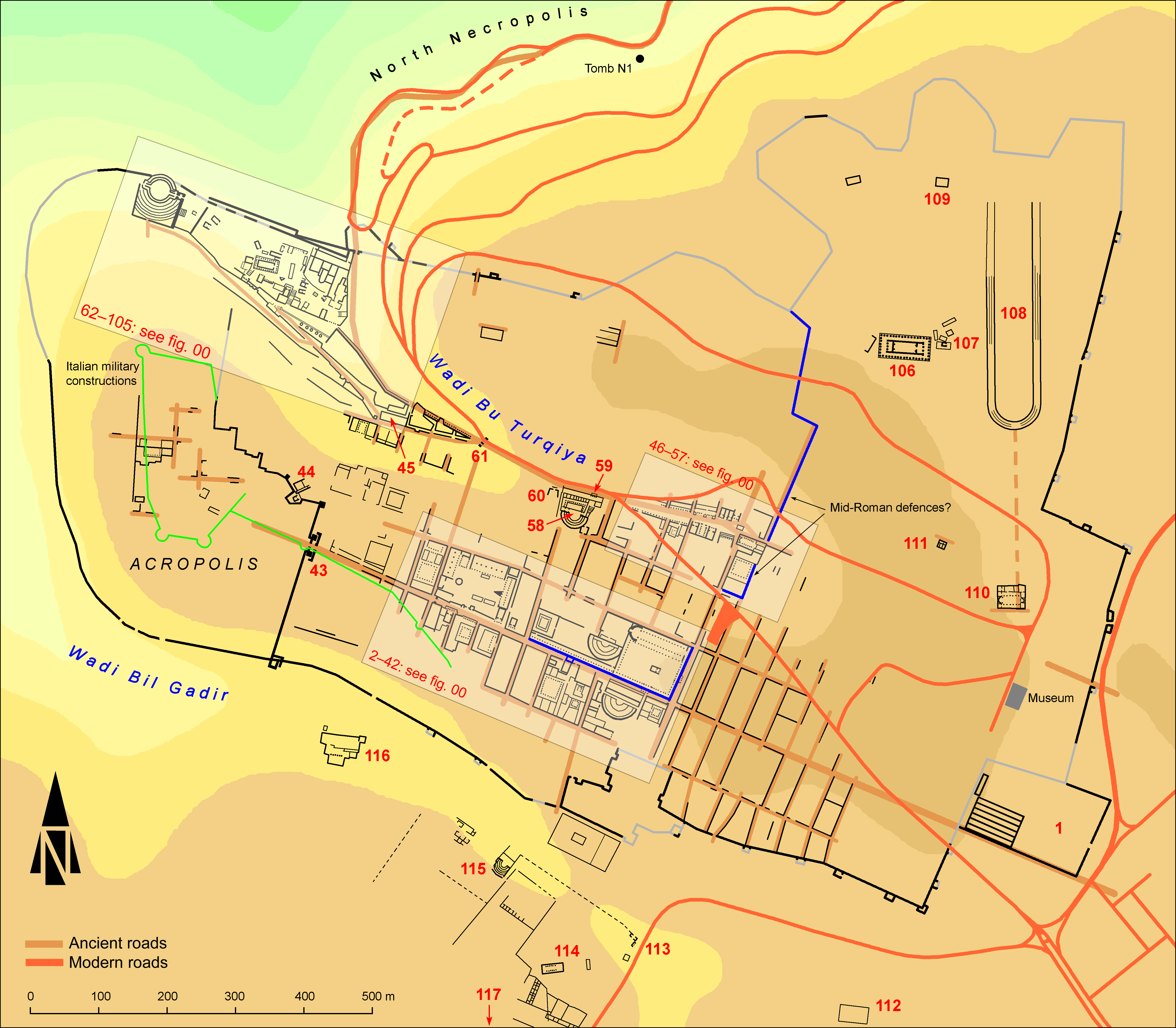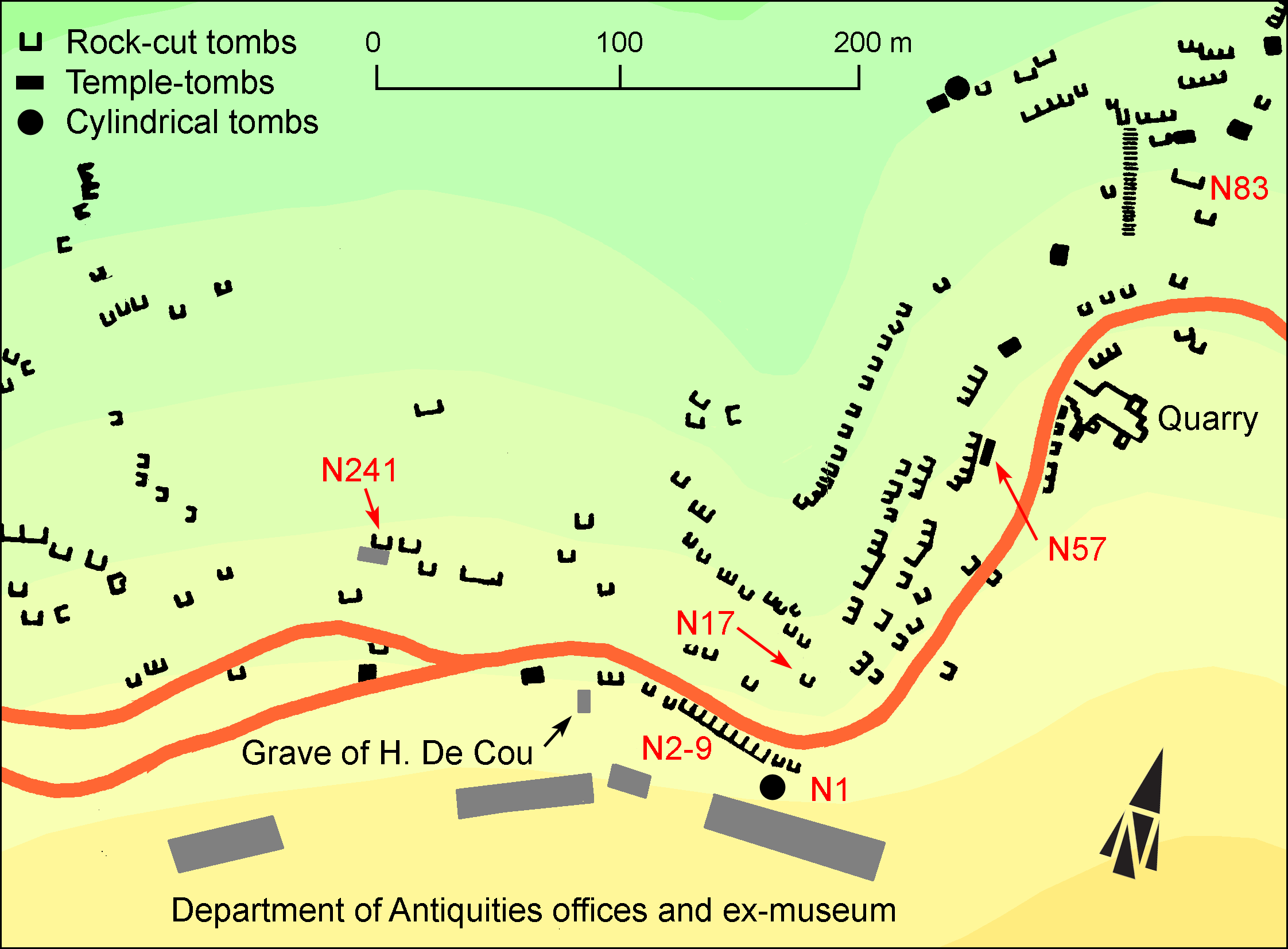EpiDoc XML:
IGCyr0099002
Trismegistos ID:
105902
Source description
Support: Lid of rock-cut sarcophagus, limestone (dimensions not recorded).
Layout: a) Roughly cut on slope of lid; b) deeply cut in good letters on the upper plinth of the lid.
Letters: ca. 0.05.
Date: Fifth to third centuries BC (lettering).
Findspot: First copied by H.F. De Cou of the Norton mission in 1911 at Cyrene ➚: North Necropolis, tomb N 22.
Place of origin: Findspot.
Last recorded location: Seen by the Thorns before 2006 in situ, in the North Necropolis. Not seen by IGCyr team.
Text constituted from: Transcription from editor.
Bibliography
Robinson 1913, n. 26, without illustration, whence Sammelbuch 5880; Cassels 1955, p. 10, n. 11; Marengo 1991, p. 33; Thorn – Thorn 2009, p. 31; IGCyr 009900 ➚.
Text
Apparatus
A.1: Ἀγ̣α̣θ̣ίνα: Ἄπλοινα Robinson 1913
B.1: hιπ<π>οσ[---]: HΙΠΟΣ Robinson 1913; hιπποσ[---] Sammelbuch reading Keil
translation
A: Agathina.
B: Hippos[---].
translation
A: Agathina.
B: Hippos[---].
translation
A: Agathina.
B: Hippos[---].
commentary
Dorothy Thorn's photograph shows A still readable, because it remained covered by earth, whereas B, exposed to the air since at least 1911, can hardly be traced on the photograph. However, it is clear that only one pi was cut, which as such gives no sense in Greek. The use of the letter H for the initial aspiration and of only one letter for a double stop are two clues for an archaic lettering. Section B would thus be earlier than A.
A : The unknown name Ἄπλοινα was already rejected as doubtful both in Fraser – Matthews 1987 and by Marengo. The Thorns were not aware of those doubts.
B : Keil thought of Ἱππόσ[τρατος], but Ἱπποσ[θένης] would be another possibility. Anyhow, there was probably no room for so long names on the plinth. Either it was cut on on the other sides of the plinth or the name was abbreviated.
French translation
A: Agathina.
B: Hippos[---].
English translation
A: Agathina.
B: Hippos[---].
Italian translation
A: Agathina.
B: Hippos[---].
Arabic translation
أ: أجاثينا. ب: هيبوس [---].
Commentary
Dorothy Thorn's photograph shows A still readable, because it remained covered by earth, whereas B, exposed to the air since at least 1911, can hardly be traced on the photograph. However, it is clear that only one pi was cut, which as such gives no sense in Greek. The use of the letter H for the initial aspiration and of only one letter for a double stop are two clues for an archaic lettering. Section B would thus be earlier than A.
A : The unknown name Ἄπλοινα was already rejected as doubtful both in Fraser – Matthews 1987 and by Marengo. The Thorns were not aware of those doubts.
B : Keil thought of Ἱππόσ[τρατος], but Ἱπποσ[θένης] would be another possibility. Anyhow, there was probably no room for so long names on the plinth. Either it was cut on on the other sides of the plinth or the name was abbreviated.
CC BY-NC-SA 4.0 Deed Attribution-NonCommercial-ShareAlike 4.0 International License.
All citation, reuse or distribution of this work must contain a link back to DOI: https://doi.org/10.60760/unibo/igcyrgvcyr2 and the filename (IGCyr000000 or GVCyr000), as well as the year of consultation.


